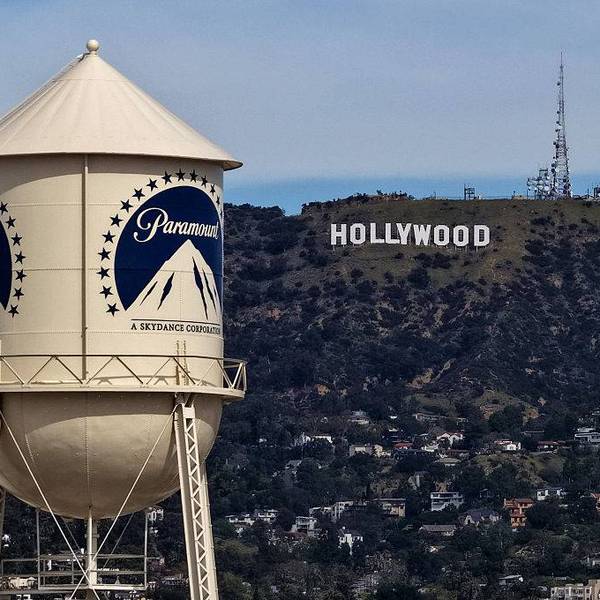FCC Green Lights 'Crushing' Charter Cable Mega-Merger
When the deal is complete, two-thirds of the nation's high-speed Internet subscribers will be under the control of just two corporations, Charter and Comcast.
The Obama administration has given the green light for Charter Communications to complete its $90 billion takeover of two other major cable providers, a move which critics warn will grant the Internet giant "crushing monopoly power" to drive up prices and control bandwidth, with almost no accountability or competition.
Federal Communications Commission (FCC) chairman Tom Wheeler on Monday circulated an order to approve Charter's acquisition of Time Warner Cable and Bright House Networks.
The merger will combine the nation's second-, third-, and sixth-largest cable-TV and Internet service providers (ISPs) and effectively place two-thirds of the nation's high-speed Internet subscribers under the authority of just two corporations, Charter and Comcast.
"Thanks to this merger both Charter and Comcast now have unprecedented control over our cable and Internet connections," declared Craig Aaron, president and CEO of the press freedom and open internet advocacy group Free Press. "Their crushing monopoly power will mean fewer choices, higher prices, no accountability and no competition."
The approval was granted despite the fact that over 300,000 public comments were submitted to the FCC opposing the merger. Democratic presidential contender Bernie Sanders and Sen. Elizabeth Warren (D-Mass.) are among the public officials who have raised "significant concerns" over the deal.
Following the announcement, both Wheeler and Charter said that the deal was approved with set of supposedly "consumer-friendly" conditions.
As Free Press explains, "The merged entity would not be permitted to charge usage-based prices, to impose data caps, or to charge interconnection fees to services including online video providers that deliver large volumes of Internet traffic to broadband customers."
But, public interest groups warn that customers, particularly low-income households and communities of color, will be left to pay the bill from the "wasteful merger," which includes a $27 billion loan Charter took on to finance the deal.
"The wasted expense of this merger is staggering," Aaron said. "For the money Charter spent to make this happen it could have built new competitive broadband options for tens of millions of people. Now these billions of dollars will do little more than line the pockets of Time Warner Cable's shareholders and executives. CEO Rob Marcus will walk away with a $100 million golden parachute."
An Urgent Message From Our Co-Founder
Dear Common Dreams reader, The U.S. is on a fast track to authoritarianism like nothing I've ever seen. Meanwhile, corporate news outlets are utterly capitulating to Trump, twisting their coverage to avoid drawing his ire while lining up to stuff cash in his pockets. That's why I believe that Common Dreams is doing the best and most consequential reporting that we've ever done. Our small but mighty team is a progressive reporting powerhouse, covering the news every day that the corporate media never will. Our mission has always been simple: To inform. To inspire. And to ignite change for the common good. Now here's the key piece that I want all our readers to understand: None of this would be possible without your financial support. That's not just some fundraising cliche. It's the absolute and literal truth. We don't accept corporate advertising and never will. We don't have a paywall because we don't think people should be blocked from critical news based on their ability to pay. Everything we do is funded by the donations of readers like you. Will you donate now to help power the nonprofit, independent reporting of Common Dreams? Thank you for being a vital member of our community. Together, we can keep independent journalism alive when it’s needed most. - Craig Brown, Co-founder |
The Obama administration has given the green light for Charter Communications to complete its $90 billion takeover of two other major cable providers, a move which critics warn will grant the Internet giant "crushing monopoly power" to drive up prices and control bandwidth, with almost no accountability or competition.
Federal Communications Commission (FCC) chairman Tom Wheeler on Monday circulated an order to approve Charter's acquisition of Time Warner Cable and Bright House Networks.
The merger will combine the nation's second-, third-, and sixth-largest cable-TV and Internet service providers (ISPs) and effectively place two-thirds of the nation's high-speed Internet subscribers under the authority of just two corporations, Charter and Comcast.
"Thanks to this merger both Charter and Comcast now have unprecedented control over our cable and Internet connections," declared Craig Aaron, president and CEO of the press freedom and open internet advocacy group Free Press. "Their crushing monopoly power will mean fewer choices, higher prices, no accountability and no competition."
The approval was granted despite the fact that over 300,000 public comments were submitted to the FCC opposing the merger. Democratic presidential contender Bernie Sanders and Sen. Elizabeth Warren (D-Mass.) are among the public officials who have raised "significant concerns" over the deal.
Following the announcement, both Wheeler and Charter said that the deal was approved with set of supposedly "consumer-friendly" conditions.
As Free Press explains, "The merged entity would not be permitted to charge usage-based prices, to impose data caps, or to charge interconnection fees to services including online video providers that deliver large volumes of Internet traffic to broadband customers."
But, public interest groups warn that customers, particularly low-income households and communities of color, will be left to pay the bill from the "wasteful merger," which includes a $27 billion loan Charter took on to finance the deal.
"The wasted expense of this merger is staggering," Aaron said. "For the money Charter spent to make this happen it could have built new competitive broadband options for tens of millions of people. Now these billions of dollars will do little more than line the pockets of Time Warner Cable's shareholders and executives. CEO Rob Marcus will walk away with a $100 million golden parachute."
The Obama administration has given the green light for Charter Communications to complete its $90 billion takeover of two other major cable providers, a move which critics warn will grant the Internet giant "crushing monopoly power" to drive up prices and control bandwidth, with almost no accountability or competition.
Federal Communications Commission (FCC) chairman Tom Wheeler on Monday circulated an order to approve Charter's acquisition of Time Warner Cable and Bright House Networks.
The merger will combine the nation's second-, third-, and sixth-largest cable-TV and Internet service providers (ISPs) and effectively place two-thirds of the nation's high-speed Internet subscribers under the authority of just two corporations, Charter and Comcast.
"Thanks to this merger both Charter and Comcast now have unprecedented control over our cable and Internet connections," declared Craig Aaron, president and CEO of the press freedom and open internet advocacy group Free Press. "Their crushing monopoly power will mean fewer choices, higher prices, no accountability and no competition."
The approval was granted despite the fact that over 300,000 public comments were submitted to the FCC opposing the merger. Democratic presidential contender Bernie Sanders and Sen. Elizabeth Warren (D-Mass.) are among the public officials who have raised "significant concerns" over the deal.
Following the announcement, both Wheeler and Charter said that the deal was approved with set of supposedly "consumer-friendly" conditions.
As Free Press explains, "The merged entity would not be permitted to charge usage-based prices, to impose data caps, or to charge interconnection fees to services including online video providers that deliver large volumes of Internet traffic to broadband customers."
But, public interest groups warn that customers, particularly low-income households and communities of color, will be left to pay the bill from the "wasteful merger," which includes a $27 billion loan Charter took on to finance the deal.
"The wasted expense of this merger is staggering," Aaron said. "For the money Charter spent to make this happen it could have built new competitive broadband options for tens of millions of people. Now these billions of dollars will do little more than line the pockets of Time Warner Cable's shareholders and executives. CEO Rob Marcus will walk away with a $100 million golden parachute."


